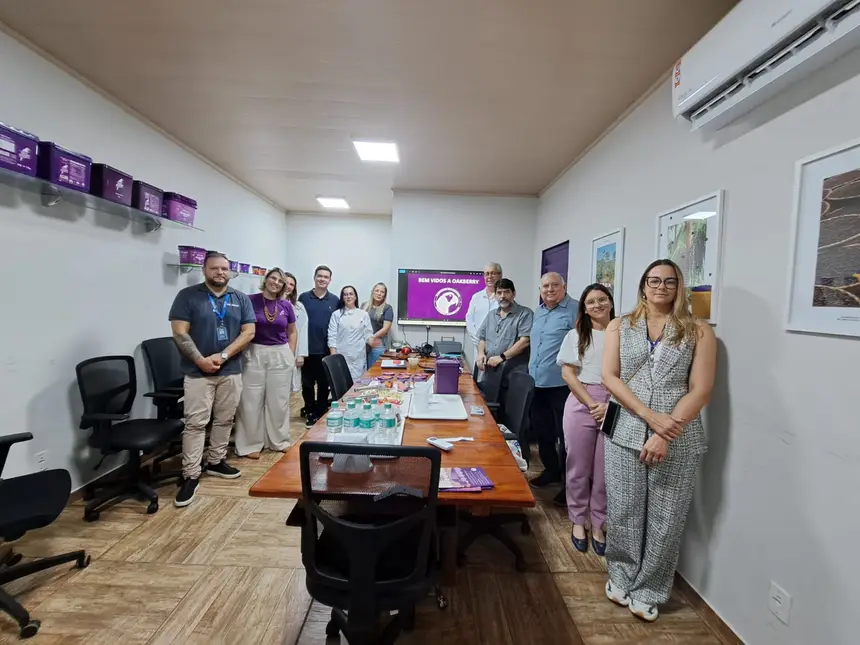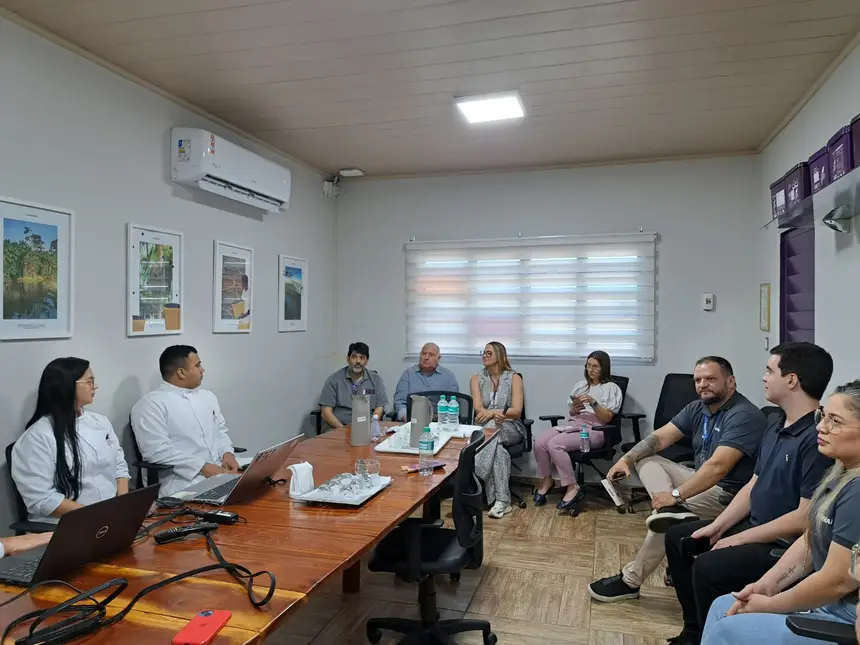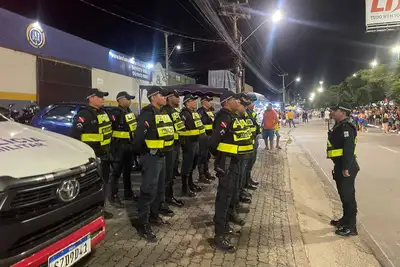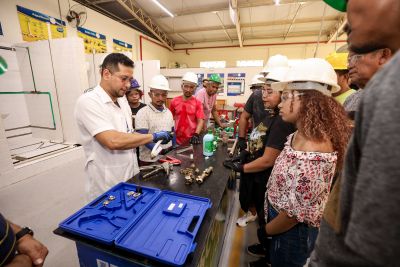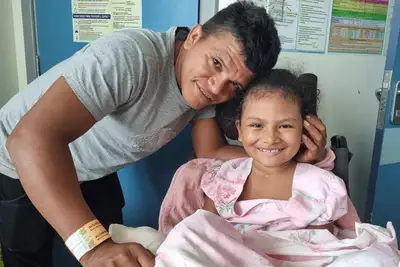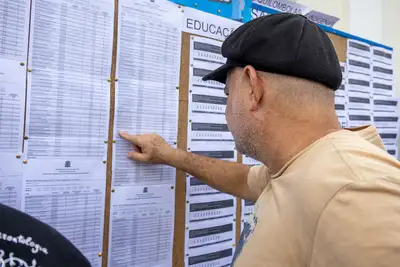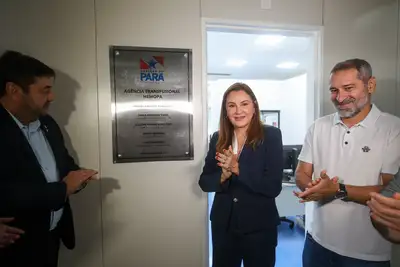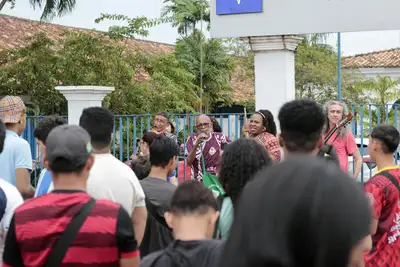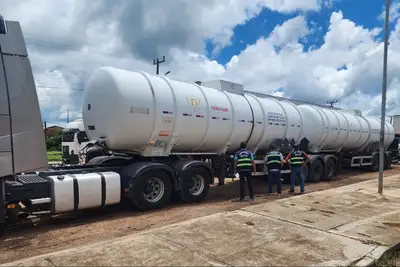Sedeme learns about the production process of an acai industry in Santa Izabel
The purpose of the visit was to monitor the development of the company encouraged by the State, which has been operating in the municipality for three years.
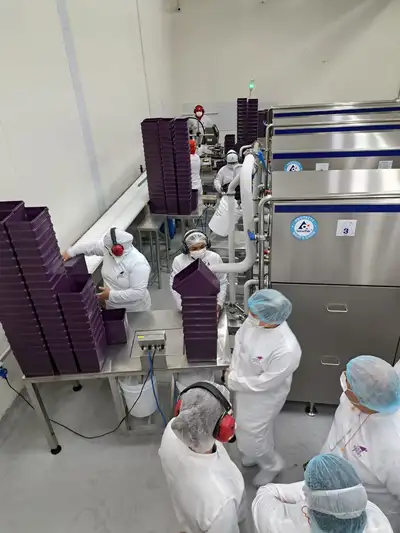
A delegation from the State Secretariat for Economic Development, Mining and Energy (Sedeme) conducted a technical visit to the facilities of Oakberry, a company specialized in acai processing, located in the municipality of Santa Izabel do Pará, in the Metropolitan Region of Belém (RMB) last Tuesday (3).
Led by Sedeme's Deputy Secretary, Carlos Ledo, accompanied by the Director of Energy at Sedeme (Diren/Sedeme), Mauro Bastos, and the Director of Industry, Commerce and Services (DDCIS/Sedeme), Sherry Brom Rodrigues, the institutional delegation also included representatives from the Federation of Industries of the State of Pará (Fiepa). The purpose of the visit was to monitor the development of the company, which has been operating in the municipality for three years with state incentives.
The visitors were welcomed by the company's General Director, Carlos Alberto Brito Soares, along with his technical team. On this occasion, he presented the factory's facilities and the production data of the commercial sector. Currently, the company produces over 10,000 tons of acai sorbet, exporting its production to more than 40 countries. With a capacity of approximately 1,200 tons/month, the factory is expanding to reach 3,000 tons/month.
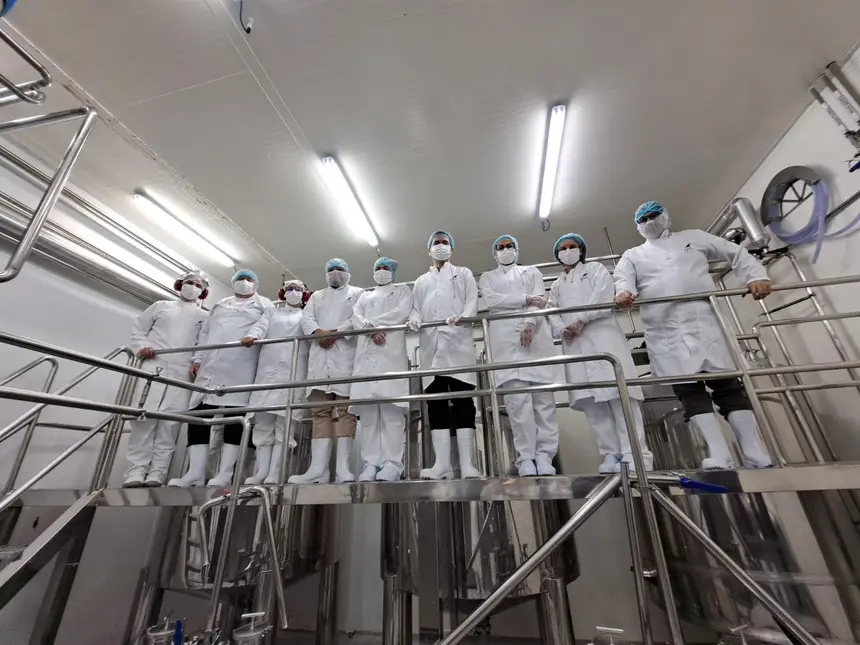
Another highlight is the acquisition of acai fruit. In 2024, Oakberry sourced its raw material from six cooperatives. However, in 2025, it expanded its partnerships and now works with 13 cooperatives, involving more than 500 acai producers, all registered and under supply contracts. As a result, 98% of the raw material comes directly from these associations, while only 2% of the demand is met by other suppliers. This expansion reinforces the company's commitment to strengthening the local production chain.
Since its establishment, investments have exceeded R$ 25 million, prioritizing local labor and suppliers, positively impacting job creation, income, and the socioeconomic development of the region.
Currently, the company employs over 170 direct workers, all hired under the Consolidation of Labor Laws (CLT), with access to health plans and other legally mandated benefits. According to the commercial director, the payroll injects more than R$ 500,000/month into the municipality's economy.
For the 2025 acai harvest, the company plans to hire more than 70 new employees, reinforcing its contribution to local development.
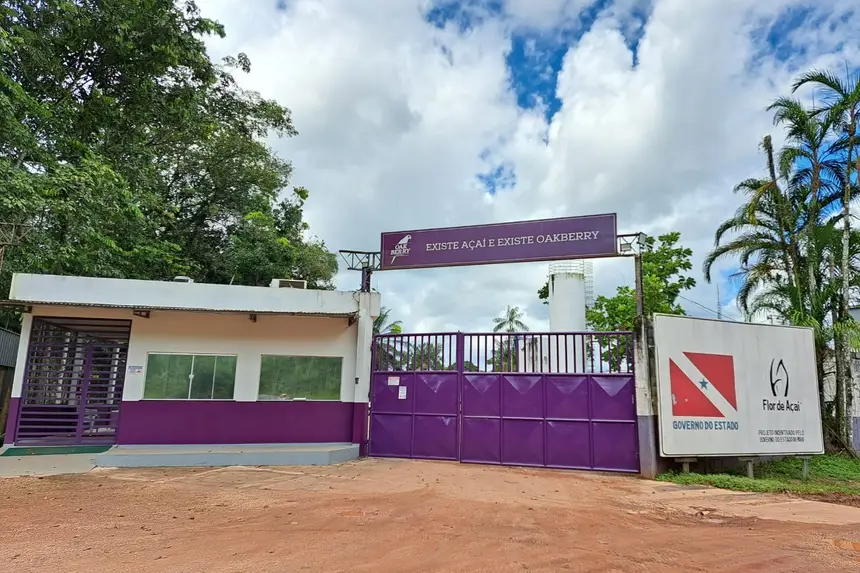
The Deputy Secretary of Sedeme, Carlos Ledo, emphasized the importance of supporting industrial sector companies in Pará. “The Government of Pará, through Sedeme, encourages projects like this, which contribute not only to the development of the municipality but also to the State as a whole.”
He also highlighted that the Incentive Policy aims, among other objectives, to generate jobs and income, decentralize economic activities, attract new investments, enhance the competitiveness of companies, and verticalize production chains. “Incentives can be granted in cases of establishing new enterprises in the State, expansion, diversification, and acquisition of machinery and equipment for the industrial process,” he explained.
For Fiepa's Executive Market Manager, Eduardo Machado, the on-site visit represents an opportunity to contribute to Sedeme in the professional qualification of the community and industry employees. He also highlights Fiepa's potential to support the conversion of the company's energy matrix, providing more economy and sustainability, as well as emphasizing the importance of logistics in this process. “Fiepa and Sedeme can join forces to strengthen the acai industry, ensuring that we continue to be a reference in this segment,” he added.
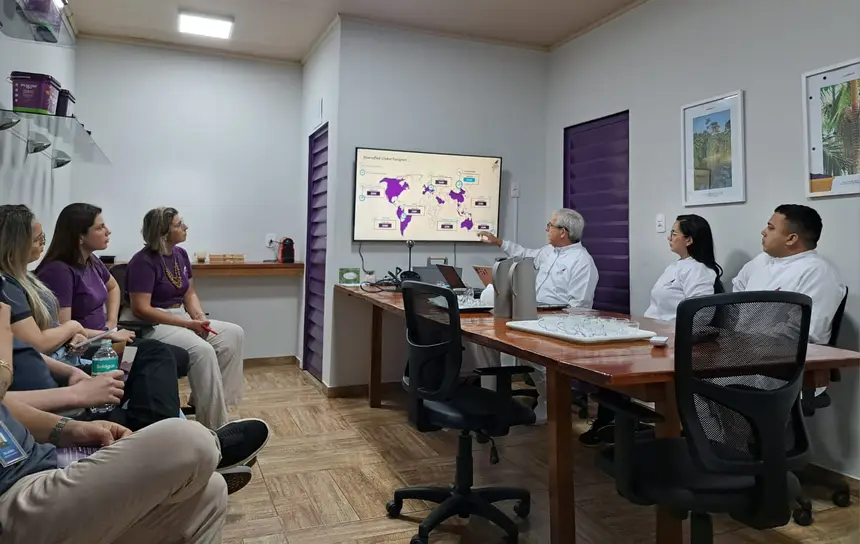
Director Sherry Rodrigues highlighted the importance of getting to know the company and observing its operations closely. "By making this direct contact, we have the opportunity to understand the infrastructure, internal processes, and organizational dynamics. With this deeper understanding, it becomes possible to plan more assertive actions and offer more efficient support, aligned with the real needs of the institution and the principles of sustainability. This is a company in the acai sector, which plays a significant role in the local production chain and receives government incentives to strengthen the regional economy and promote sustainable practices. The visit allowed us to recognize the potential for positive social and environmental impact that the company represents, reinforcing the importance of partnerships that value economic development alongside environmental preservation and productive inclusion."
The delegation included Fiepa's Market Manager, Gleyce Milene da Silva Moura; Fiepa's International Relations Advisor, Lucas Sobrinho; and Sedeme's Cabinet Manager, Thaís Sá.


